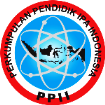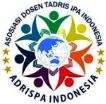Application of Self-Regulated Approach to Strategic Learning (SRSL) APICPEM on Students’ Learning Achievement in the Topic of Sound Waves
Abstract
Physics is a science that is often considered difficult by students and causes low physics learning achievement. One of the causes of low learning achievement is internal factors that arise from within the students, so a strategy with a self-regulated approach is needed such as the Self-Regulated Approach to Strategic Learning (SRSL) APICPEM (Analyse, Plan, Implement, Comprehend, Problem-Solve, Evaluate, Modify) so that students can carry out learning according to their needs and characteristics. This study aims to determine the application of Self-Regulated Approach to Strategic Learning (SRSL) APICPEM on students’ learning achievement in sound wave material. This research was conducted at a high school in Bandung with a sample of 72 students. The research method used is a mixed method with an unbalanced mixed design (concurrent embedded design). Quantitative data were collected through nonequivalent (posttest only) control group design using the posttest instrument for learning achievement in sound waves. Then qualitative data as a support was collected through narrative qualitative using a SRSL APICPEM mixed questionnaire instrument. The results showed that the implementation of APICPEM SRSL in the experimental group went very good (average score is 80%), with the selection of various student learning strategies according to the characteristics and various other factors, both internal and external factors of students. As well as there is a significant influence from the implementation of SRSL APICPEM on learning achievement with the effectiveness of its influence is evident from the effect size test, which resulted in a value of 0.622, classified as very high. Therefore, this study was able to prove that the application of SRSL APICPEM was able to improve student learning achievement in the topic of sound waves.
Keywords: self-regulated, self-regulated approach to strategic learning, learning achievement, sound waves
Full Text:
PDFReferences
Anas, P. S. & Alsa, A. (2016). Strategi Self-Regulated Learning dalam Meningkatkan Prestasi Belajar Matematika pada Siswa SMP. Gadjah Mada Journal of Professional Psychology, 2(3), 142-155.
Arikunto, S. (2015). Prosedur Penelitian Suatu Pendekatan Praktik. Jakarta: PT Rineka Cipta.
Biber, B. T. (2022). Self-Regulated Learning Strategies Used by Students to Prepare Mathematics Exams. International Journal of Progressive Education, 18(4), 223-238.
Charli, L., Ariani, T., & Asmara, L. (2019). Hubungan Minat Belajar terhadap Prestasi Belajar Fisika. SPEJ (Science and Physics Education Journal), 2(2), 52-60.
Creswell, J. W. (2009). Research Design: Qualitative, Quantitative, and Mixed Methods Approaches. California: SAGE Publications.
Erviani, F. R., Sutarto, S., & Indrawati, I. (2016). Model Pembelajaran Instruction, Doing, dan Evaluating (MPIDE) disertai Resume dan Video Fenomena Alam dalam Pembelajaran Fisika di SMA. Jurnal Pembelajaran Fisika, 5(1), 53-59.
Filianti, D. L. (2022). Strategi Self Regulated Learning untuk Meningkatkan Prestasi Akademik Siswa di MA Sains Roudlotul Qur’an Lamongan. (Doctoral dissertation, Universitas Islam Negeri Maulana Malik Ibrahim).
Fritz, C. O., Morris, P. E., & Richler, J. J. (2012). Effect Size Estimates: Current Use, Calculations, and Interpretation. Journal of Experimental Psychology: General, 141(1), 2-18.
Guido, R. M. D. (2013). Attitude and Motivation towards Learning Physics. International Journal of Engineering Research & Technology (IJERT), 2(11), 2087-2094.
Heldawati, H., Septiana, N., & Yuliani, H. (2022). Deskripsi Kebutuhan LKS Berbasis Inkuiri Terbimbing Pokok Bahasan Gelombang Bunyi di Kelas XI. DIFFRACTION: Journal for Physics Education and Applied Physics, 4(1), 24-32.
Herryanti, D. A., Tanzeh, A., & Masrokan, P. (2021). Pengaruh Gaya, Minat, Kebiasaan dan Lingkungan Belajar terhadap Prestasi Belajar Siswa Madrasah Ibtidaiyah di Era New Normal. Edukatif: Jurnal Ilmu Pendidikan, 3(6), 3935-3945.
Irsyadella, R. (2020). The Use of Self-Regulated Learning Strategies by Good Learners of English Department Students in English Language Learning. RETAIN, 8(1), 25-37.
Kristiyani, T. (2016). Self Regulated Learning (Konsep, Impikasi, dan Tantangannya Bagi Siswa Di Indonesia. Yogyakarta: Sanata Dharma University Press.
Kurniasari, A., Pribowo, F. S. P., & Putra, D. A. (2020). Analisis Efektivitas Pelaksanaan Belajar dari Rumah (BDR) Selama Pandemi COVID-19. Jurnal Review Pendidikan Dasar: Jurnal Kajian Pendidikan dan Hasil Penelitian, 6(3), 246-253.
Latipah, E. (2015). Strategi Self Regulated Learning dan Prestasi Belajar: Kajian Meta Analisis. Jurnal Psikologi, 37(1), 110-129. doi: https://doi.org/10.22146/jpsi.7696.
Maulida, S. I., Prihandono, T., & Maryani, M. (2019). Pengembangan Modul Fisika Gelombang Bunyi Berbasis REACT untuk Kelas XI IPA. Jurnal Pembelajaran Fisika, 8(3), 174-180.
Mufidah, L. L. N. (2017). Memahami Gaya Belajar untuk Meningkatkan Potensi Anak. Martabat: Jurnal Perempuan dan Anak, 1(2), 245-260.
Ningsih, S. H., Sulistyaningsih, W., & Hardjo, S. (2014). Hubungan antara Kebiasaan Belajar dan Dukungan Orangtua dengan Prestasi Belajar. Analitika Desember, 6(2), 77-83.
Philip, B. (2006). Self-Regulated Approach to Strategic Learning (SRSL): A Socio-cognitive Perspective. Journal of Language Teaching, Linguistics and Literature, 8-21.
Rosário, P., Núñez, J. C., Valle, A., González-Pienda, J., & Lourenço, A. (2013). Grade level, study time, and grade retention and their effects on motivation, self-regulated learning strategies, and mathematics achievement: a structural equation model. European journal of psychology of education, 28, 1311-1331.
Sagala, S. (2017). Konsep dan Makna Pembelajaran: untuk Membantu Memecahkan Problematika Belajar dan Mengajar. Bandung: Penerbit Alfabeta.
Sari, E. R., & Satwika, Y. W. (2018). Hubungan antara Self-Regulated Learning dengan Prestasi Akademik Siswa di SMK Muhammadiyah 1 Taman Sidoarjo. Character: Jurnal Penelitian Psikologi, 5(2), 1-6.
Sugiyono, S. (2013). Metode Penelitian Kuantitatif, Kualitatif dan R&D. Bandung: Penerbit Alfabeta.
Syafi’i, A., Marfiyanto, T., & Rodiyah S. K. (2018). Studi tentang Prestasi Belajar Siswa dalam Berbagai Aspek dan Faktor yang Mempengaruhi. Jurnal Komunikasi Pendidikan, 2(2), 115-123.
Syah, M. (2008). Psikologi Pendidikan. Bandung: Remaja Rosdakarya.
Toro, S. (2022). Self-Regulated Learning Strategies for the Introductory Physics Course with Minimal Instructional Time Required. Journal of College Science Teaching, 51(5), 16-22.
Woolfolk, A. (2018). Educational Psychology. Upper Saddle River: Pearson Education USA.
Yusoff, M. S. B. (2019). ABC of Content Validation and Content Validity Index Calculation. Education in Medicine Journal, 11(2), 49-54.
Zimmerman, B. J. & Martines-Pons, M. (1990). Student differences in self-regulated learning: Relating grade, sex, and giftedness to self efficacy and strategy use. Journal of Educational Psychology, 82(1), 51-59.
Zimmerman, B. J. (1989). A Social Cognitive View of Self-regulated Learning. Journal of Educational, 81(3), 329-339.
Zimmerman, B. J. (2008). Investigating self-regulation and motivation: Historical background, methodological, developments, and future prospects. American Educational Research Journal, 45(1), 166-183.
DOI: http://dx.doi.org/10.24014/jnsi.v7i1.26684
Refbacks
- There are currently no refbacks.

Journal of Natural Science and Integration
E-ISSN: 2620-5092 P-ISSN: 2620-4967
Published By:
Department of Science Education, Faculty of Education and Teacher Training,
State Islamic University of Sultan Syarif Kasim Riau, Indonesia
Mailing Address:
Jl. H.R Soebrantas Km. 15 No. 155
Kelurahan Simpang Baru
Kecamatan Tuah Madani, Pekanbaru, Riau, Indonesia
Email: jnsi.tadrisipa@uin-suska.ac.id
Indexed By:
Journal of Natural Science and Integration is licensed under a Creative Commons Attribution 4.0 International License.


_-_Copyy2.png)






.jpg)
.png)
.jpg)
.jpg)




